Today in the western lung of the Catholic Church, we celebrate the great feast of the Holy Family of Jesus, Mary and Joseph. On this day, we seek to understand the unconditional love and sacrifice that existed between Jesus Christ, his mother, Mary and his earthly father, Joseph. The Holy Family is the perfect prototype for every Christian family.
The Catechism of the Catholic Church, Paragraph 533 states,
“The hidden life at Nazareth allows everyone to enter into fellowship with Jesus by the most ordinary events of daily life: The home of Nazareth is the school where we begin to understand the life of Jesus – the school of the Gospel. First, then, a lesson of silence. May esteem for silence, that admirable and indispensable condition of mind, revive in us. . . A lesson on family life. May Nazareth teach us what family life is, its communion of love, its austere and simple beauty, and its sacred and inviolable character… A lesson of work. Nazareth, home of the “Carpenter’s Son”, in you I would choose to understand and proclaim the severe and redeeming law of human work…” (Pope Paul VI, Feast of the Holy Family 1964).
Twenty years ago today, Blessed John Paul II declared the Year of the Family for 1994. Drawing on the text, Familiaris Consortio, the Church sought to focus on the family as the “domestic church”, to promote the dignity and value of each person in the human family, and to promote the importance of traditional marriage and family life.
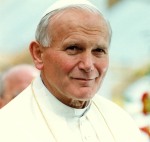 Knowing the importance of marriage and family life in the modern world, the soon-to-be Saint, Blessed John Paul II wrote, Gratissimam Sane (Letter to Families). In the twenty years since this document was written, our views on marriage, which come directly from the Sacred Scriptures, have been mocked, ridiculed, and threatened by those seeking to demolish the traditional family as we know it. As Catholics, we must stand up against these forces and declare the Truth of Jesus Christ and His Church.
Knowing the importance of marriage and family life in the modern world, the soon-to-be Saint, Blessed John Paul II wrote, Gratissimam Sane (Letter to Families). In the twenty years since this document was written, our views on marriage, which come directly from the Sacred Scriptures, have been mocked, ridiculed, and threatened by those seeking to demolish the traditional family as we know it. As Catholics, we must stand up against these forces and declare the Truth of Jesus Christ and His Church.
The words of wisdom from Blessed John Paul II should be a battle cry for us Catholics –
“Among these many paths, the family is the first and the most important. It is a path common to all, yet one which is particular, unique and unrepeatable, just as every individual is unrepeatable; it is a path from which man cannot withdraw… The family has its origin in that same love with which the Creator embraces the created world, as was already expressed “in the beginning”, in the Book of Genesis (1:1)” (#2).
“Prayer increases the strength and spiritual unity of the family, helping the family to partake of God’s own “strength.”” (#4).
“The family has always been considered as the first and basic expression of man’s social nature. Even today this way of looking at things remains unchanged. Nowadays, however, emphasis tends to be laid on how much the family, as the smallest and most basic human community, owes to the personal contribution of a man and a woman. The family is in fact a community of persons whose proper way of existing and living together is communion: communio personarum”(#7).
“Marital consent defines and consolidates the good common to marriage and to the family. “I, N., take you, N., to be my wife/husband…First, the common good of the spouses: love, fidelity, honour, the permanence of their union until death—”all the days of my life”. The good of both, which is at the same time the good of each, must then become the good of the children” (#10).
“In the newborn child is realized the common good of the family. Just as the common good of spouses is fulfilled in conjugal love, ever ready to give and receive new life, so too the common good of the family is fulfilled through that same spousal love, as embodied in the newborn child. Part of the genealogy of the person is the genealogy of the family, preserved for posterity by the annotations in the Church’s baptismal registers, even though these are merely the social consequence of the fact that “a man has been born into the world” (cf. Jn 16:21)” (#11).
“Who can deny that our age is one marked by a great crisis, which appears above all as a profound “crisis of truth“? A crisis of truth means, in the first place, a crisis of concepts. Do the words “love”, “freedom”, “sincere gift”, and even “person” and “rights of the person”, really convey their essential meaning?…Only if the truth about freedom and the communion of persons in marriage and in the family can regain its splendour, will the building of the civilization of love truly begin and will it then be possible to speak concretely—as the Council did—about “promoting the dignity of marriage and the family” (#13).
“The civilization of love evokes joy: joy, among other things, for the fact that a man has come into the world (cf. Jn 16:21), and consequently because spouses have become parents. The civilization of love means “rejoicing in the right” (cf. 1 Cor 13:6). But a civilization inspired by a consumerist, anti-birth mentality is not and cannot ever be a civilization of love” (#13).
“Every effort should be made so that the family will be recognized as the primordial and, in a certain sense “sovereign” society! The “sovereignty” of the family is essential for the good of society. A truly sovereign and spiritually vigorous nation is always made up of strong families who are aware of their vocation and mission in history. The family is at the heart of all these problems and tasks. To relegate it to a subordinate or secondary role, excluding it from its rightful position in society, would be to inflict grave harm on the authentic growth of society as a whole” (#17).
More of this document will be presented in tomorrow’s “Mondays with Mary” – ‘Mother of Fairest Love.’
Categories: Christmas, Pope Saint John Paul II
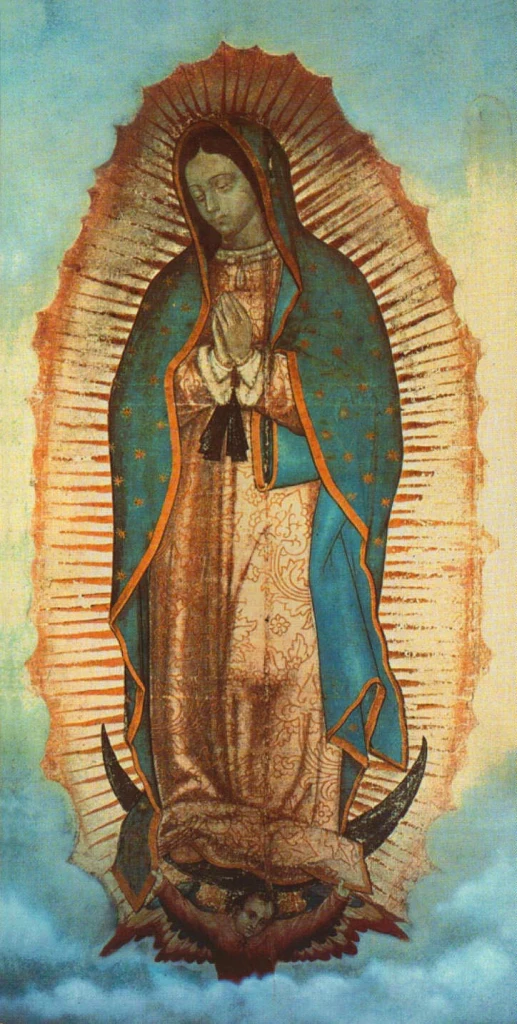
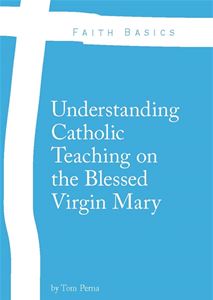


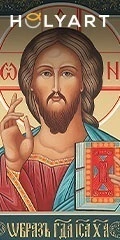
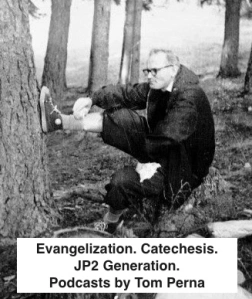



Reblogged this on Lavender Turquois.